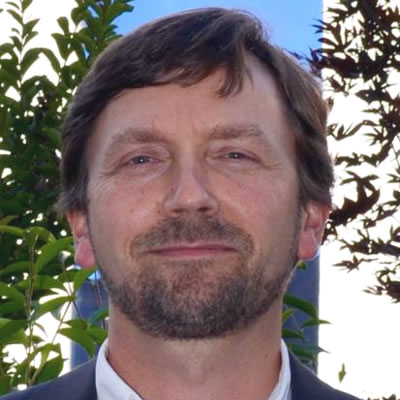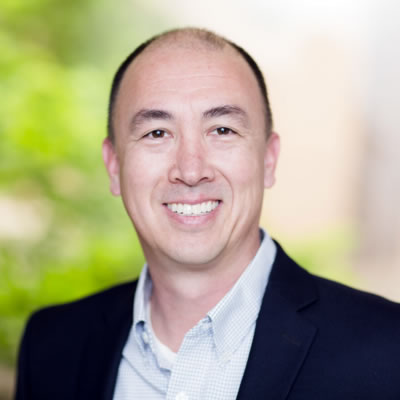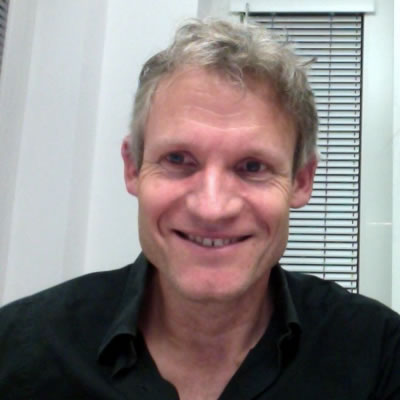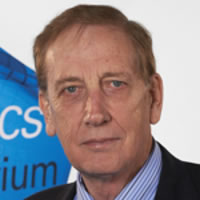Research focused on developing a deeper understanding of the process of storing CO2 in subsurface structures, with the aim of reducing the storage risks, developing monitoring and control technologies.
Our research
The Carbon Storage Program within the Centre is focused on the study and assessment of potential CO2 storage sites through the provision of research, technical review and advice.
The CO2 storage research team is multidisciplinary with particular strengths in geochemistry, geomicrobiology, numerical modelling of reservoir processes and geophysics including seismic interpretation. Our projects are focused on developing a deeper understanding of the process of storing CO2 in subsurface structures, with the aim of reducing the storage risks and developing monitoring and control technologies.

Professor Ralf Haese
Project leader, Geochemistry
Professor Ralf Haese has recently been appointed at the Peter Cook Centre for CCS Research as Professor of Geological Carbon Storage. Professor Haese is a geologist by training with a track record in developing and delivering world-class research particularly in the areas of aquatic geochemistry and biogeochemistry. He is the CO2CRC Project Leader on Reactive Reservoir Rocks and has served as CCS Discipline Leader at Geoscience Australia.
Professor Haese’s research interests cover all biogeochemical and aquatic geochemical aspects of the global carbon cycle. He held research positions at the University of Bremen (Germany) and the University of Utrecht (The Netherlands). His current research focuses on geochemical impacts of CO2 injection and storage including experimental studies on mineral dissolution kinetics, static and reactive-transport modelling, field studies on CO2 storage capacity and the development of hydrochemical monitoring indicators.
Email: ralf.haese@unimelb.edu.au

Dr John Moreau
Geomicrobiology
John Moreau is a geomicrobiologist and Lecturer in the School of Earth Sciences at the University of Melbourne. His research focuses on environmental microorganisms and the processes by which they mediate the cycling of important geological and biological trace elements.
Before coming to the University of Melbourne in 2008, he was a National Research Council Postdoctoral Fellow at the United States Geological Survey, where he began his continuing research on biogeochemical mercury transformations. His research group applies a combination of geochemical and microbiological approaches to understanding problems such as the microbial response to supercritical CO2 injection into the deep subsurface. As part of the CO2CRC, John leads a team using cutting edge molecular biological and metagenomic methods to survey the deep biosphere community response to supercritical CO2, in order to predict the longer-term stability of CO2 and aquifer mineralogy and geochemistry. The Moreau Lab is conducting both field- and laboratory-based analytical and experimental work to elucidate this topical problem in subsurface carbon storage.
Email: jmoreau@unimelb.edu.au

Professor Stephan K. Matthäi
Project leader, Reservoir Engineering
Stephan K. Matthäi has commenced his position as Chair of Reservoir Engineering in the Department of Infrastructure Engineering. Stephan leaves a position heading the Montan University of Leoben, Austria, Institute of Reservoir Engineering to join the University of Melbourne. Stephan is a consultant to the oil & gas industry, as well as government institutions. He is a frequent keynote speaker and co-organiser of SPE, EAGE and other international conferences.
His research investigates multiphase flow in NFRs during GOGD (Gas Oil Gravity Drainage) in carbonates and wettability alteration in heterogeneous porous media. He is also the originator of the Complex System‘s Modelling Platform (CSMP++). This software library (API) facilitates the solution of multi-physics (thermal - hydrologic - mechanic - chemical = THMC) problems in geometrically complex models; one particular domain of application is Discrete Fracture and Matrix modelling and simulation of NFRs. CSMP++ enjoys a growing international user community, incorporating the latest research developments from many well-known universities.

Professor Peter J Cook
CBE, FTSE, FGS, FAIMM
Professor Cook is one of Australia’s foremost scientists and technology leaders in the areas of energy, greenhouse technology and sustainability. He is a Professorial Fellow at the University of Melbourne, a company Director, consultant, senior advisor and author. He was an IPCC Coordinating Lead Author and in this role was a co-recipient of the Nobel Peace Prize for 2007.
Professor Cook has been a consultant and adviser on resource and energy issues in Australia, Finland, Greece, Germany, Japan, Netherlands and Portugal. He has been a consultant to NASA, various national governments, and a range of companies, and has served on Boards and Advisory Boards in Australia, the UK and for international bodies.
Professor Cook has occupied a number of senior executive positions during his career: In 2003, following five years as the Executive Director of the Petroleum Cooperative Research Centre, he initiated the Cooperative Research Centre for Greenhouse Gas Technologies (CO2CRC) and served as its Chief Executive until 2011.
Email: pjcook@unimelb.edu.au